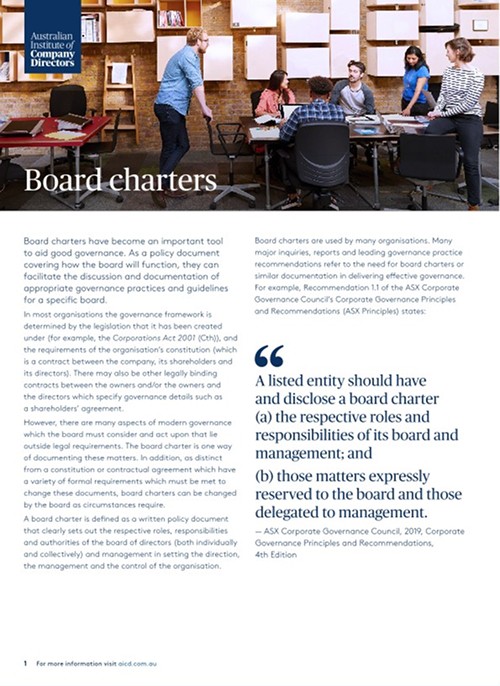
Board charters have become an important tool to aid good governance. As a policy document covering how the board will function, they can facilitate the discussion and documentation of appropriate governance practices and guidelines for a specific board.
In most organisations the governance framework is determined by the legislation that it has been created under (for example, the Corporations Act 2001 (Cth)), and the requirements of the organisation’s constitution (which is a contract between the company, its shareholders and its directors). There may also be other legally binding contracts between the owners and/or the owners and the directors which specify governance details such as a shareholders’ agreement.
However, there are many aspects of modern governance which the board must consider and act upon that lie outside legal requirements. The board charter is one way of documenting these matters. In addition, as distinct from a constitution or contractual agreement which have a variety of formal requirements which must be met to change these documents, board charters can be changed by the board as circumstances require.
A board charter is defined as a written policy document that clearly sets out the respective roles, responsibilities and authorities of the board of directors (both individually and collectively) and management in setting the direction, the management and the control of the organisation.
Latest Director Tools
Already a member?
Login to view this content

